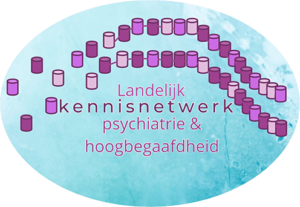Nicole Tetreault, Ph.D. is a compassionate neuroscientist, author, founder, researcher, meditation teacher, and international speaker on topics of neurodiversity, neurodevelopment, creativity, mental health, and wellness.
She received her Ph.D. from Caltech in biology, specializing in neurodevelopment and neurodegenerative disorders. As the founder of Awesome Neuroscience, she translates the most promising neuroscience and positive psychology for people to live their best lives. She has authored numerous academic papers on intelligence, autism, brain evolution, neuroinflammation, and behavior. She is passionate about helping people wire their minds for love, fusing ancient meditation with modern neuroscience. It’s a radical idea that we can wire our minds for love in each and every moment!
“Dr. Tetreault, how did you get involved in neurodiversity, and especially giftedness?”
“My story started when my mother was diagnosed with Parkinson’s Disease. As her condition progressed, I noticed there was an enormous focus on the motor symptoms, and no focus on the other aspects that are associated with this disease.
There was little to no attention for the emotional impact, but we do know Parkinson’s has a high impact on self-regulation, self-reliance and social intercourse. Unfortunately, there was a major lack of information. We didn’t find a health program to deal with these challenges. Her needs weren’t met.
That was the reason for me wanting to study neuroscience. It turned out to be a lifelong dedication. First, I did a Ph.D. on autism. At that time, autism was discussed by the old model, meaning we rather looked at levels of functioning, instead of a spectrum-based view. For example, we talked about the restrictions of classical autism, or a high functioning Asperger.
An important paradigm shift ensued from a demonstration in New York by people who didn’t want to get labeled this way and wanted to be seen differently. They wanted to be appreciated by their value, not their deficits. In this epicenter of change to a more spectrum-based view, I immersed myself in neurodiversity.
I have read over a thousand articles about behavior and the brain. The basic work of Judy Singer (known for coining the term “neurodiversity”) contributed to my way of thinking about the neuroscience behind neurodiversity and neurodivergence. Subsequently, I took a deeper dive into giftedness after I learned my son was gifted.”
“What can neuroscience teach us about giftedness and intelligence?”
“We all have a unique fingerprint of the brain. We know the gifted brain has some areas that are especially developed. We can identify the neurotypology specifically associated with giftedness. Studies show that gifted adults have increased bilateral brain activation. Imaging technology also shows structural and functional differences, like increased volume and connectivity in the prefrontal cortex, the area of the brain responsible for executive functions such as attention, planning, decision-making, and working memory. In other words, they are very good at quick processing.
Nonetheless, neuroscience is equally illuminating how no two brains are alike. For example, in a gifted, but mainly creative, kid, specific brain areas are especially developed. However, those talents don’t align with standardized tests. In some languages, you have for instance 30 words for the same concept. So, you can imagine those neural networks need more time to figure things out and because of this heterogeneity you would probably get lower results on a standardized test.
Still, in America, if you have a disharmonic profile but let’s say your verbal skills are >130 you are considered as gifted. So, it’s also a matter of perspective.”
“Do you think we need a different view on giftedness?”
“Yes! I am a strong advocate of positive messaging. In my opinion, we’re not looking at the strengths. We are minimizing all the qualities that neurodiversity has to offer.
Gifted and twice exceptional (gifted + learning disability; nvdr) individuals perceive and respond to the world with heightened receptivity and processing which originates from their neurobiology and physiology.
We need to understand gifted experiences can be deep, rich and intense because the gifted are simply “hard-wired” differently. Such talents should be explored. Unconventional thinking and creativity are enriching to each and every one of us, if we would give it a chance.”
“What are the needs of the gifted and how can mental health care professionals be of help?”
“I think a positive and rewarding environment is important. The gifted need community to build their strengths, to develop skills of resilience, and to discover their potential. If these needs are not fulfilled, they are at risk of feeling anxious and isolated. The gifted need a sense of purpose and belonging. Of course, peer contact can be helpful, but it is the feeling of being connected that is the most important. One of my best friends is an eighty-year-old woman. I have friends of all ages. It is about the social, emotional, intellectual and creative connection, being gifted we long to meet like-minded people. For me it’s about the heart connection and finding people I can be unapologetically myself when I am with them.
I think the uniqueness is an offering. Look at the abilities and the possibilities neurodiversity, including giftedness, can give to the world. When a person taps into their essence, they experience the light of coming into their full embodiment and can learn to thrive in all areas of life.
So, ask yourself, “What makes them light up? What makes you light up? What makes us light up?” That is the gift. When we are connected and lit up together, we can express our divine gifts. That goes beyond giftedness or otherness or differentness, when we connect human to human, soul to soul, we wire our minds for love and connect with the diverse gifts, accept and celebrate our individual gifts and beings in the world!”

